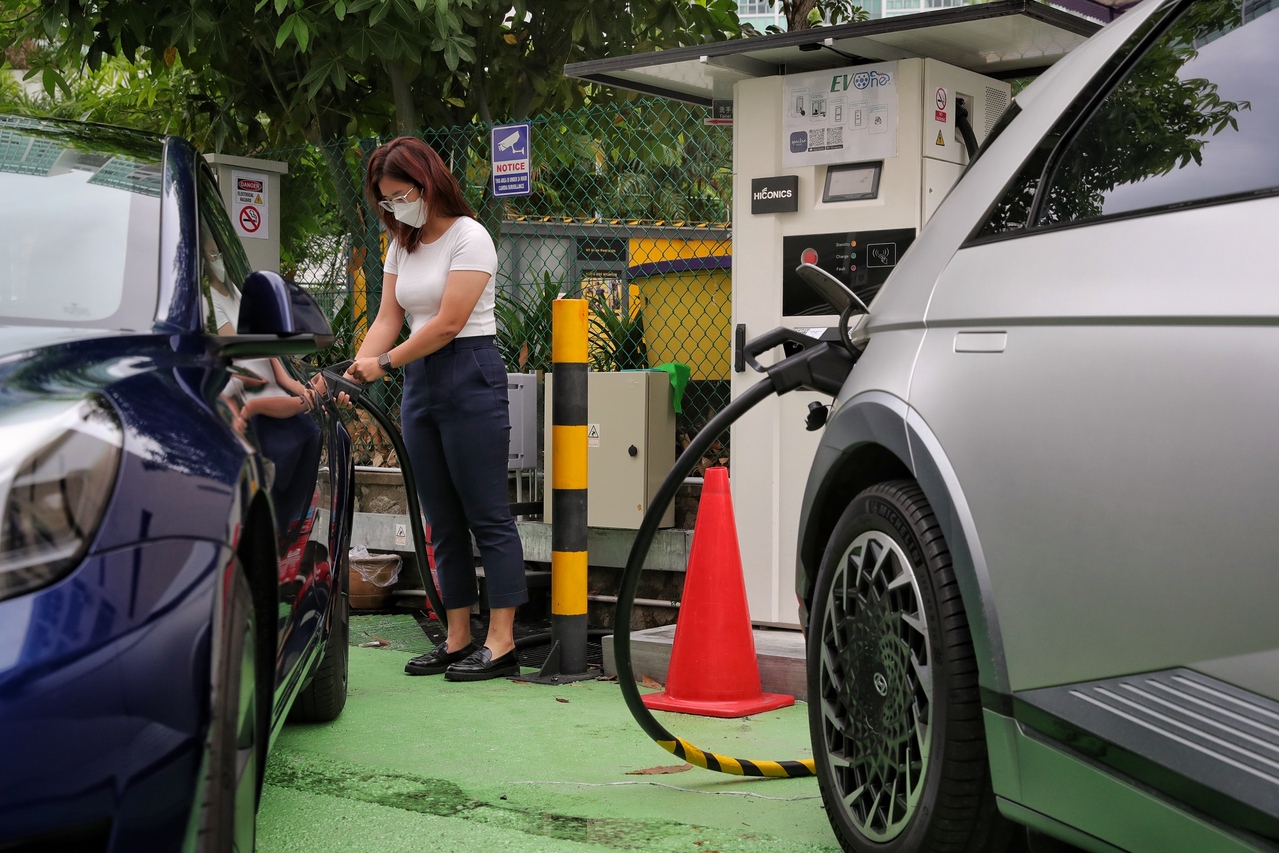OCBC-NUS study to look into what would make Singaporeans buy electric vehicles
Sign up now: Get ST's newsletters delivered to your inbox

Vehicles being charged at an EV charging station on Aug 5. The findingswill help accelerate consumers' adoption of EVs.
ST PHOTO: KEVIN LIM
SINGAPORE - OCBC Bank and the National University of Singapore (NUS) will jointly conduct a new study later this year to look into what would make Singaporeans switch from conventional petrol or diesel vehicles to electric vehicles (EVs).
Announced on Thursday (Aug 18), the study will take place over three months and will examine anonymised data from 32,000 OCBC customers, such as spending on fuel.
Associate Professor Alberto Salvo, deputy head of research at NUS' economics department, will head the research team, which comprises environmental and behavioural economists from the NUS Global Asia Institute, as well as an expert on the EV markets in the United States and China from Cornell University.
The study will dig deep into factors such as long-term costs of EV ownership and the effects of carbon emissions from conventional vehicles to the earth's climate.
The findings, to be released in the second quarter of 2023, will help businesses and organisations accelerate consumers' adoption of EVs and other green practices, said OCBC.
The results of the study would also be helpful in raising awareness about the benefits and costs of purchasing an EV, which is more environmentally friendly compared to a conventional petrol vehicle, said Prof Salvo, who is also the associate director of the Global Asia Institute.
He added: "The EV market is very fluid, information frictions are substantial and there is little carbon literacy. The choice of going electric is super complex.
"The study is about improving the quality and relatability of the information and then seeing which is more influential in making people adopt EVs."
The findings will allow OCBC bank to refine and tailor its green products to make them more attractive to customers.
The take-up rate of its electric vehicle loan, or the OCBC Eco-Care car loan, has more than doubled since its launch in March 2021. The bank expects its overall Eco-Care car loan business to grow by more than 250 per cent by the end of the year.
The EV market is currently on an upward trend here, with almost one in 10 new cars sold in the first six months being EVs.
According to the Land Transport Authority (LTA), 1,488 EVs were registered in the first half of 2022. This makes up 9 per cent of the 16,567 new cars that were registered and marks a sharp rise from the 3.8 per cent share at the end of last year.

Vehicles being charged at an EV charging station on Aug 5. The findingswill help accelerate consumers' adoption of EVs.
ST PHOTO: KEVIN LIM
But EVs are still a minority on the roads here, with LTA statistics showing they make up less than 1 per cent of Singapore's total car population, with cost being a deterring factor.
The lack of widespread battery-charging infrastructure is another concern, although Singapore plans to have 60,000 EV chargers by 2030.
Minister for Sustainability and the Environment Grace Fu, who attended the launch of the study, said the study allows both organisations to combine their strengths and find solutions to contemporary problems.
She said: "Partnerships and collaborations are needed in climate action as global warming and resource depletion are complex wicked problems that no country or company can solve on its own.
"We are at a crucial point in our fight against climate change. Together, we can ensure Singapore remains a green and resilient home for future generations."


